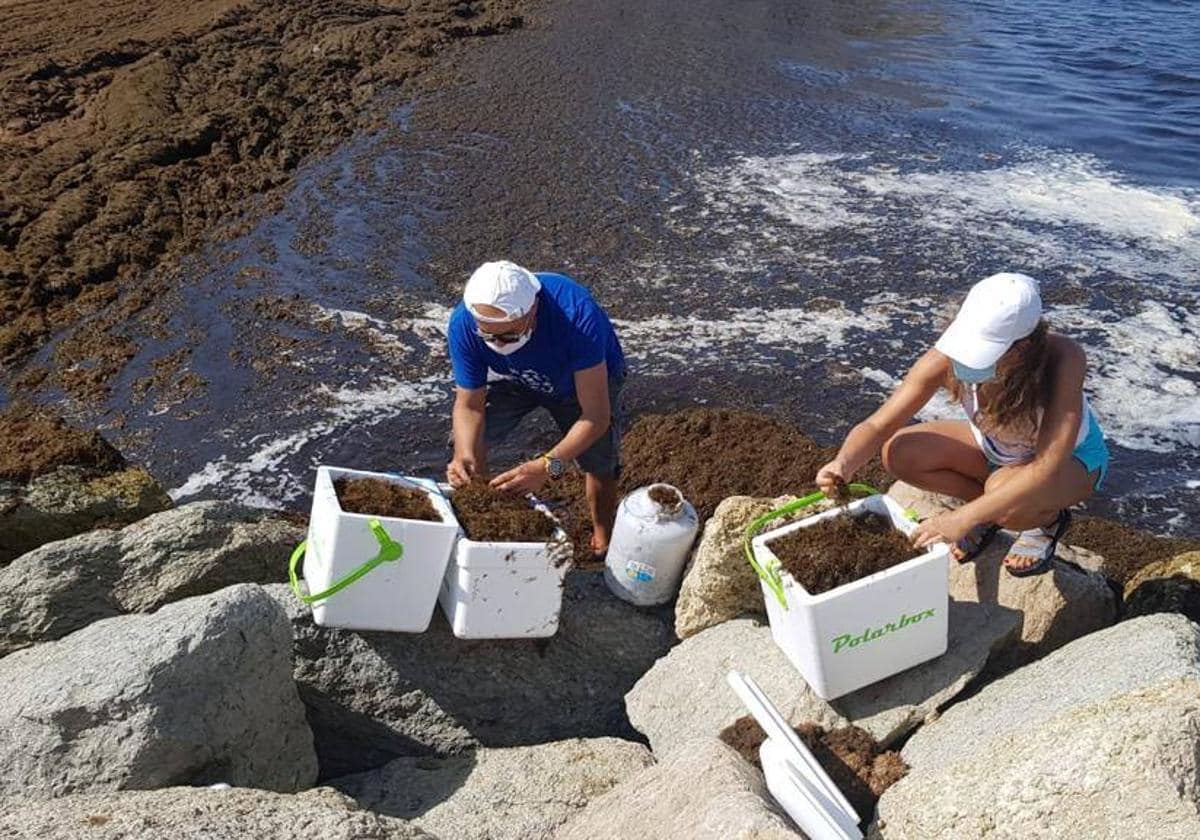Civitas Puerto Banús enables pilot project in bid to protect rare limpet species from extinction
Native to the western Mediterranean, it is the most endangered intertidal mollusc on the EU Habitats Directive list. In countries such as France and Italy, it is considered extinct, and in Spain it is as endangered as the Iberian lynx
David Lerma
Marbella
Wednesday, 6 December 2023, 13:51
The 27th Andalucía Environment Awards organised by the Department of Sustainability, Environment and Blue Economy of the Junta de Andalucía regional government, were recently held at the Palacio de Congresos in Cordoba. The ceremony recognised eleven companies and professionals for their commitment to the conservation, protection and dissemination of environmental values. One of the recipients was Civitas Puerto Banús, which manages the well-known port of Marbella. The company has worked in collaboration with a professor of Marine Biology of the University of Seville, José Carlos García Gómez, whose research could save the limpet Patella ferruginea from extinction.
Native to the western Mediterranean, it is the most endangered intertidal mollusc on the EU Habitats Directive list. In countries such as France and Italy, it is considered extinct, and in Spain it is considered as endangered as the Iberian lynx.
Since 2021, Cívitas Puerto Banús and the University of Seville have been carrying out a pilot project led by José Carlos García Gómez, who is also head of the Marine Biology Laboratory at the University of Seville. This project has made it possible to transfer these limpets to an artificial habitat using a new technique. The method is carried out through rapid, manual extraction during the relaxation phase, during the rising tide, to transport them in holding plates and watertight bags, with a survival rate of up to 95 per cent. This new method will protect the future of this species, as eventually they will be able to introduce adult specimens in natural habitats where the species is absent, but where it existed previously.

Juan Núñez, CEO of Civitas Puerto Banús, explained how it all started. "In 2017 we made a significant change in the management of the company and there was a change in direction. In the new management team we wanted to see what new areas to work on and where we wanted to direct Puerto Banús, always maintaining its origin as a reference port in nautical and commercial matters in the south of Spain. We realised that we had to work along two lines: to be more careful with the impact on the environment and to modernise and digitalise the infrastructures. We realised that Puerto Banús at the time was doing little in terms of sustainability. We drew up a five-year roadmap. We have made progress on many initiatives, including protecting local biodiversity. We live thanks to the sea and for the sea. We realised we had a critically endangered species. So we contacted José Carlos."
"We had been trying for several years to find a way to achieve an effective translocation," explained biologist José Carlos García, who said that, after failing in every attempt, he finally had his eureka moment. "It has happened to every researcher". At first, when the specimens were pulled up, "there was an O-ring effect", i.e. the limpets were sealed if they were changed from one substrate to another and eventually died of dehydration. "I was very frank with them. The chances of success were close to zero at the time". But in the end, tenacity and the discovery of a key point in the research led to a breakthrough. "Sometimes you can't see the wood for the trees. It was as simple as avoiding the suction cup effect when you pull it out and leave it on another surface".
At present, the Alborán Sea holds the largest number of this species, but the biologist said that "its habitat is in danger due to its easy access to humans and because it is very easy to remove them with a knife or a stone. The last stronghold of the Neanderthals in the area, in the Mora cave in Gibraltar, shows that they were already capturing them". Especially the larger females, although they are born male at first and then sexual inversion takes place. If they stay too far away from each other, the chances of fertilisation are reduced. "This is how extinction starts," concluded the researcher.
